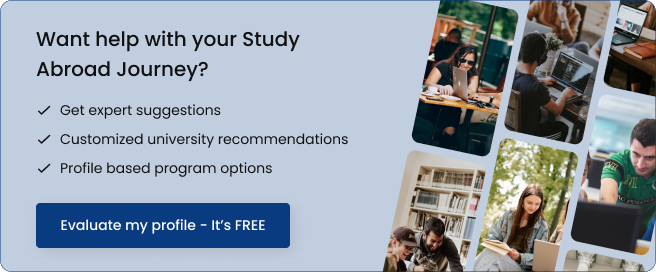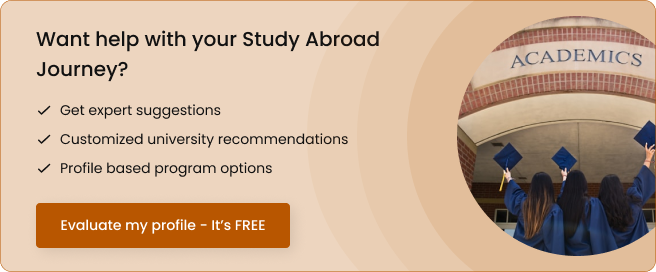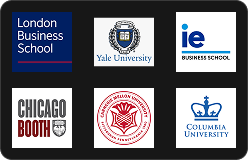
Top MBA Colleges in Australia
Why Choose Australia for an MBA?Australia is a growing hub for international MBA students—thanks to its globally ranked…
Table of Contents

Looking for the best MBA programs in Canada? Wondering if Canada is the right choice for your MBA journey? Let's dive in and explore everything you need to know!
The answer lies in its high-quality education, global recognition, affordability, and post-graduation work opportunities. Especially for Indian students, Canada offers a welcoming multicultural environment and immigration pathways that make it easier to settle in the country.
Did you know that Indian students make up a large portion of the MBA population in Canada? The affordability, easy visa process, and strong job market have made Canada a favorite destination for many.
Feature | Details |
High-Quality Education | Top-ranked business schools with renowned faculty and industry connections |
Global Recognition | MBAs from Canada are recognized worldwide, with programs often appearing in global rankings |
Affordability | Tuition fees are generally lower compared to the US or UK, with a good return on investment |
Multicultural Environment | A diverse student body and inclusive culture, making international students feel at home |
Post-Graduate Work Permit (PGWP) | Allows students to work in Canada after their studies and explore immigration pathways |
Canada has a range of top-tier business schools. But which one is right for you? Here’s a quick overview of the top MBA programs:
Business School | Rankings (2024) | Unique Features | Specializations |
Rotman School of Management | Top 10 globally | Integrative Thinking approach, Creative Destruction Lab for scaling science and tech startups | Finance, Consulting, Healthcare, Innovation |
Ivey Business School | Top 20 in North America | Case-based learning with over 300 real-world cases, Leadership Essentials Program | Leadership, Strategy, Consulting, Marketing |
McGill University (Desautels) | Top 25 globally | Bilingual MBA (English/French), McGill Dobson Centre for Entrepreneurship | International Business, Entrepreneurship, Finance |
UBC Sauder School of Business | Top 30 globally | Centre for Social Innovation and Impact Investing, Focus on sustainability | Marketing, Technology Management, Sustainability |
Queen’s Smith School of Business | Top 35 globally | Focus on personalized coaching, Strong alumni network | Finance, Innovation, Strategy |
Schulich School of Business (York) | Top 40 globally | Specialization in tech-driven areas, Flexible study options | Technology, Sustainability, Marketing |
HEC Montréal | Top 50 globally | Expertise in Francophone markets, Focus on international business | International Business, Finance, Entrepreneurship |
Alberta School of Business | Top 100 globally | Strong connections to the energy sector, Focus on resource management | Energy, Natural Resources, Entrepreneurship |
DeGroote School of Business (McMaster) | Top 100 globally | Focus on evidence-based decision-making, Close ties to healthcare sector | Healthcare, Finance, Operations Management |
What are the basic requirements to apply for an MBA in Canada? Here's a breakdown of what most universities ask for:

How much does an MBA in Canada cost, and what are the available scholarships?
Here’s a table summarizing the MBA fees and available scholarships for top business schools in Canada in 2024:
School | Average Fees (2024) in CAD | Scholarships Available |
| Rotman School of Management | $120,000 | Merit-based and need-based scholarships |
| Ivey Business School | $115,000 | Various internal scholarships |
| McGill University (Desautels) | $90,000 | McGill MBA Fellowships |
| UBC Sauder School of Business | $80,000 | UBC Graduate Scholarships (Top 10 students) |
| Queen’s Smith School of Business | $90,000 | Merit-based scholarships, Queen's MBA Excellence Awards |
| Schulich School of Business | $100,000 | Schulich Entrance Scholarships, Schulich Graduate Scholarships |
| HEC Montréal | $60,000 | Various merit-based scholarships |
| Alberta School of Business | $70,000 | Alberta MBA Entrance Scholarships |
| DeGroote School of Business | $75,000 | DeGroote MBA Scholarships |
| John Molson School of Business | $65,000 | Merit-based and program-specific scholarships |
After completing an MBA in Canada, the doors to lucrative career opportunities across various industries are wide open. Canada’s strong economy, coupled with its business-friendly environment, has made it a hub for global companies.
Canada has a growing demand for MBA graduates in several sectors. Here are the top industries that actively hire MBA talent:
Salaries for MBA graduates in Canada vary depending on the industry and the specific role. Here’s a breakdown of average salaries:
Industry | Average Salary (CAD) | Popular Roles |
| Technology | $100,000 - $120,000 | Product Manager, Data Analyst, IT Manager |
| Consulting | $90,000 - $110,000 | Management Consultant, Strategy Manager |
| Finance | $95,000 - $130,000 | Investment Banker, Financial Analyst |
| Healthcare | $85,000 - $110,000 | Healthcare Manager, Biotech Consultant |
| Sustainability/Energy | $80,000 - $105,000 | Operations Manager, Sustainability Consultant |
These figures are general averages, and salaries can vary based on the size of the company, the city, and the level of experience.
MBA graduates from Canadian business schools are in high demand, and many top companies actively recruit from schools like Rotman, Ivey, and McGill. Some of the prominent hiring companies include:
Industry | Hiring Companies |
| Tech | Shopify, Google, Microsoft, Amazon, IBM, Facebook |
| Consulting | McKinsey & Company, Bain & Company, Boston Consulting Group (BCG), Deloitte, PwC |
| Finance | RBC, TD, Scotiabank, CIBC, Morgan Stanley, BMO Capital Markets |
| Healthcare/Pharmaceuticals | Pfizer, Johnson & Johnson, GSK, Medtronic |
| Sustainability/Energy | Suncor, Enbridge, TransCanada, Brookfield Renewable |
These companies often offer recruitment opportunities directly through business school placement services, and many students secure job offers before even completing their MBA.

Canada offers excellent opportunities for international MBA graduates to work and eventually settle in the country. The Post-Graduation Work Permit (PGWP) program is one of the most attractive options for students who wish to gain Canadian work experience after their studies. Furthermore, this work experience can act as a stepping stone to obtaining Permanent Residency (PR) through programs like the Express Entry System.
The Post-Graduation Work Permit (PGWP) allows international students who have completed their studies at a Canadian institution to stay and work in Canada for up to three years. Here’s how it works:
Eligibility Requirements
You must have completed a full-time program of study at an eligible Canadian institution that lasted at least eight months.
The program you completed should be a degree, diploma, or certificate.
Apply for the PGWP within 180 days of receiving your final grades and graduation confirmation.
Permit Duration
The length of your PGWP depends on the length of your study program:
Programs under 2 years: You will be eligible for a PGWP of the same length as your program.
Programs 2 years or longer: You will be eligible for a 3-year PGWP.
No Job Offer Required
You do not need a job offer to apply for the PGWP. This allows you to stay in Canada and search for employment after graduation, giving you flexibility.
Work Anywhere in Canada
The PGWP is an open work permit, meaning you can work for any employer, in any job, and anywhere in Canada. It allows you to gain valuable work experience in sectors that align with your MBA specialization.
Once you’ve gained some Canadian work experience through the PGWP, you can start the process of transitioning to Permanent Residency (PR). One of the most popular routes for international graduates is through the Express Entry System, specifically the Canadian Experience Class (CEC).
The Canadian Experience Class (CEC) is designed for people who have already worked in Canada. To qualify, you must:
Have at least 1 year of full-time skilled work experience (or equivalent part-time) in Canada within the last three years.
Have gained this experience while on a valid work permit (such as the PGWP).
Meet the minimum language proficiency in English or French (depending on your occupation).
The Comprehensive Ranking System (CRS) is used to rank applicants in the Express Entry pool. Your Canadian work experience gained through the PGWP adds valuable CRS points, which increases your chances of receiving an Invitation to Apply (ITA) for PR.
The Express Entry System is one of Canada’s fastest and most efficient ways for skilled immigrants to obtain Permanent Residency. Here’s a quick breakdown:
How Express Entry Works
The Express Entry System is a points-based system used to manage applications for skilled workers who want to become permanent residents.
Candidates are scored based on the Comprehensive Ranking System (CRS), and those with the highest scores are invited to apply for PR.
Create a Profile: First, you need to create an online profile, providing details about your education, work experience, language skills, and other factors.
Receive CRS Score: After submitting your profile, you will receive a CRS score. If your score is high enough, you will be placed in the Express Entry pool.
Receive an Invitation to Apply (ITA): If you rank among the top candidates in the pool, you will receive an ITA to apply for PR.
Submit Application: Once you receive an ITA, you’ll have 60 days to submit a complete application for PR.
The entire process, from submitting your Express Entry profile to receiving your PR status, can take as little as 6 months, making it one of the quickest routes to residency.
Yes, pursuing an MBA in Canada without a GMAT score is possible! Many Canadian universities understand that standardized tests like the GMAT might not be the best indicator of a candidate’s potential. Therefore, several business schools offer GMAT waivers for applicants who meet specific criteria such as work experience, academic performance, or professional certifications.
GMAT waiver programs are designed for candidates who have proven their capabilities in other ways, such as through significant work experience or a strong academic background. Schools often look for:
GMAT Waiver Criteria | Details |
| Professional Experience | Applicants with 5+ years of managerial or leadership experience may qualify for a GMAT waiver. |
| Academic Excellence | Exceptional academic performance, such as a high GPA, can allow schools to overlook GMAT requirements. |
| Alternative Certifications | Holding certifications like CFA (Chartered Financial Analyst) or CPA (Certified Public Accountant) may exempt applicants from GMAT submission. |

Here’s a list of some of the top business schools in Canada that offer GMAT waivers:
School | GMAT Waiver Criteria |
| Rotman School of Management | Candidates with 5+ years of work experience or significant professional achievements |
| Schulich School of Business | GMAT waiver available for candidates with strong academic records and relevant experience |
| McGill University (Desautels) | Waivers based on work experience, strong GPA, and professional qualifications |
| Ivey Business School | Waivers for candidates with exceptional work experience (8+ years) |
| Queen’s Smith School of Business | Candidates with 5+ years of relevant work experience |
| HEC Montréal | Offers waivers for applicants with extensive managerial experience |
| Alberta School of Business | GMAT waived for those with outstanding academic records and 5+ years of work experience |
Note: Schools may also consider waiving the GMAT for candidates applying during specific conditions, such as through executive MBA programs.
Pros | Details |
| Saves Time and Stress | No need for months of GMAT prep; focus on other application areas. |
| Accessible for Experienced Pros | Work experience can replace the need for a test score. |
| No Test Anxiety | Avoid the stress of standardized testing. |
Cons | Details |
| Limits School Choices | Fewer schools offer GMAT waivers, limiting options. |
| Perceived as Less Competitive | Lacks the competitive edge of a GMAT score. |
| Missed Opportunity | GMAT could strengthen a weak GPA or work history. |
